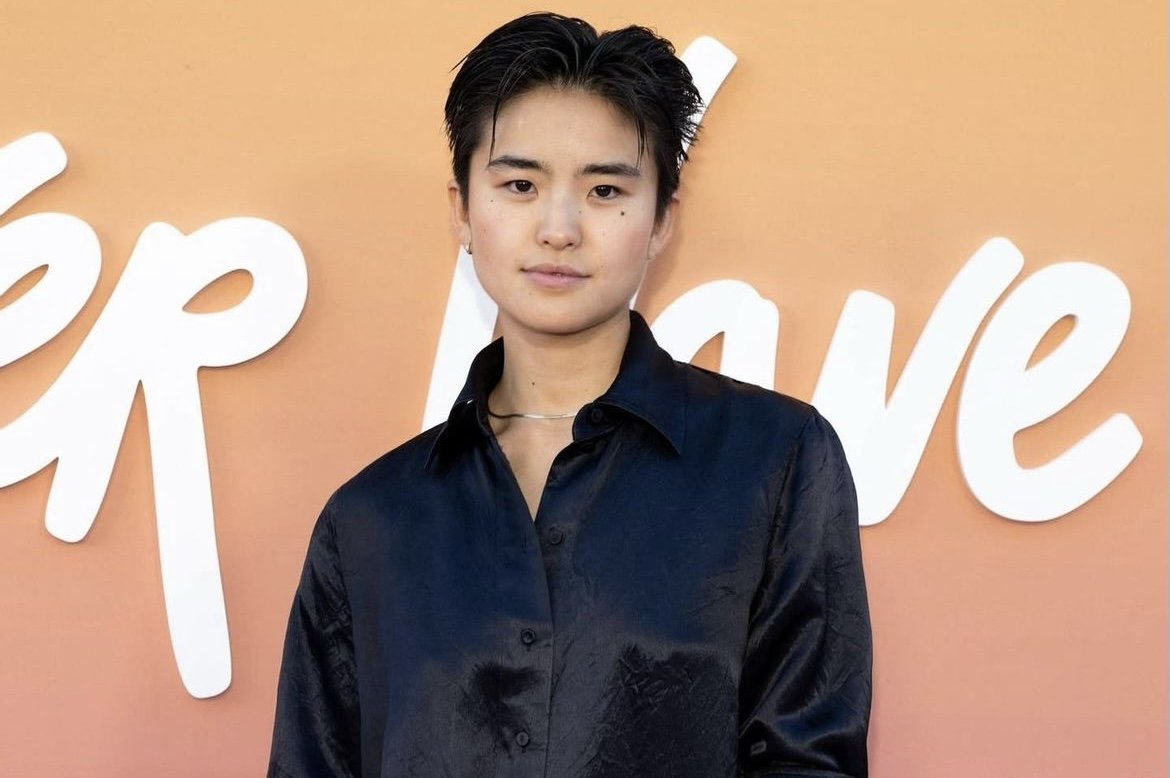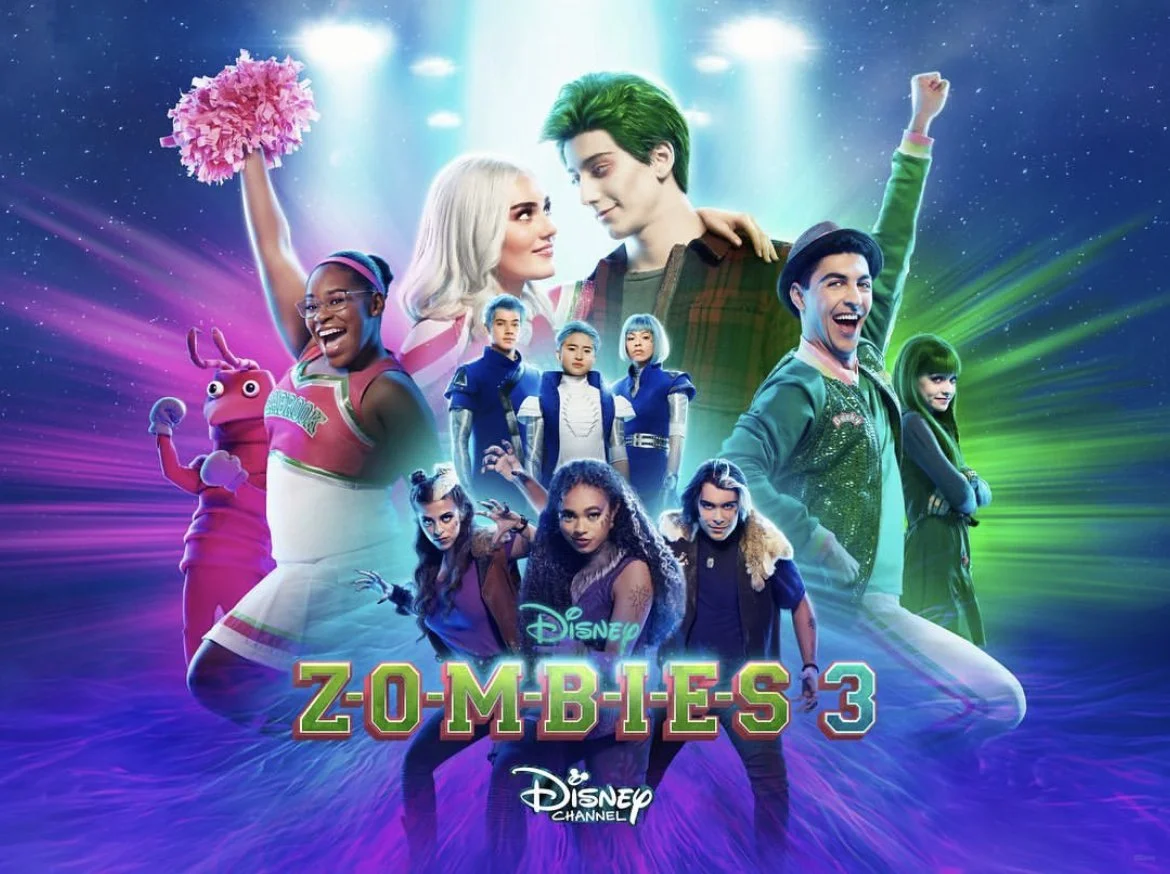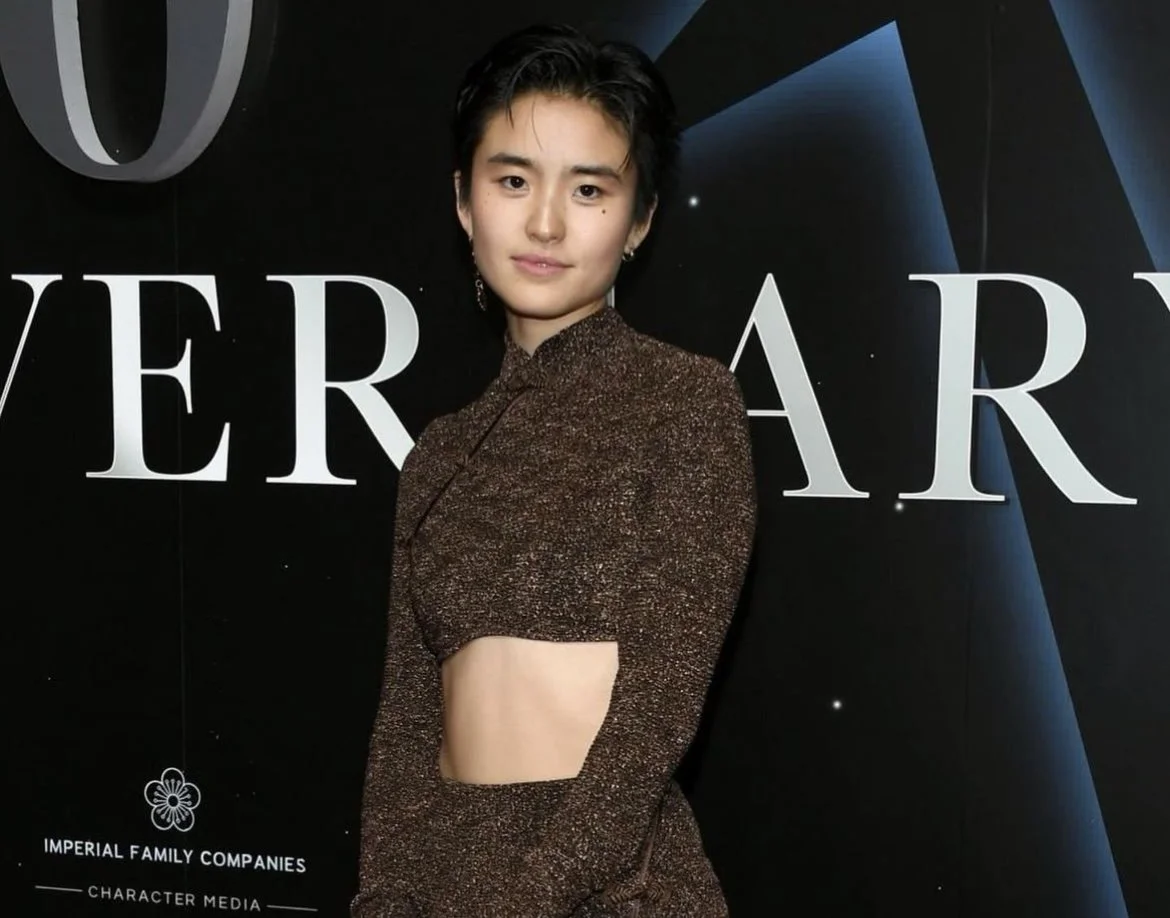Terry Hu's Moment: Defying Expectations in Hollywood and Promoting Queer and Asian American Representation
Synthesis Publications founder and co-president Elise Tao recounts meeting up-and-coming film and TV star Terry Hu. This is what we found out about diversity, representation, and the acting lifestyle in the entertainment industry.
Terry Hu at the Never Have I Ever Season 3 premiere in Los Angeles, California. (Image Source: Getty Images)
In an age where Disney+ sits across the TV console from Netflix and Hulu, there are sure to be more opportunities for up-and-coming actors than we’ve ever witnessed before.
Take Terry Hu, a nonbinary actor who has been exposed to newfound stardom with the release of Z-O-M-B-I-E-S 3. They are a Capricorn, love Friendsgiving (around the time we conducted this interview), and have hopes of working with more arthouse or independent film production companies, one of which is A24.
I had the opportunity to sit down with Terry at a local cafe to chat about their experience thus far in showbusiness and how they’ve navigated a career route that has only recently opened doors for creatives of intersecting identities.
Most of the Internet will recognize Terry as Addison from Mindy Kaling's teen dramedy show Never Have I Ever. In January 2022, Terry auditioned for the role of Addison by submitting a self-tape (an at-home self-recorded tape) using “sides” (industry term for excerpts of a script) provided by casting. Terry, as expected, was elated to discover that they were officially cast on one of the most globally recognized shows in Netflix history. They officially began filming in mid-February.
Although they have landed deals with some of the most coveted filmmaking corporations in the world, Terry didn’t initially begin their twenties expecting to become an actor. Acting was always at the back of their mind, but as children of immigrant parents can all acknowledge, securing a “safe” job (in the realm of doctor, lawyer, etc.) would always be the top priority.
“It wasn’t until fans starting reaching out that it really emotionally sank in for me, the impact of my casting.”
When Terry was younger, they would always tag along as their brothers attended acting classes. They took away some tips and tricks and began to audition for commercials during middle school, making the NJ transit trek (if you know, you know) from their hometown in north NJ to New York City where all the castings were. This extracurricular activity also included many photoshoots and modeling gigs, something Terry reminisces on fondly. When high school came around, Terry found themself removed from the acting world almost entirely until junior year, when they attempted to find their old talent manager from their childhood.
After high school, Terry went off to college at UCLA. Knowing their parents wouldn’t approve of them majoring in theater, they decided to pursue a pre-health track, majoring in neuroscience with plans on eventually attending physical therapy school. Despite eventually getting into the top PT schools in the nation after graduation, Terry ultimately deferred acceptance to give their acting dreams a “fuller” shot — something they felt ignited to do after landing an acting agent via an open casting call. To support themselves while auditioning, they joined a tech-start up as an intern. By the end of that year, Terry had flourished at that startup and also won ABC’s Digital Talent Competition. With the security of their job and the encouragement from the competition, Terry decided to formally turn down PT school, officially setting their sights on pursuing their acting career, despite their parents’ expectations.
Nonetheless, Terry advises anyone interested in entering the entertainment industry to be wise with their decision making and be level-headed in the process of pursuing a creative path ahead. They already had saved-up money by working at the tech company after graduating from college while simultaneously hunting for acting gigs, and claims that this experience has helped them realize to build a skillset outside of film that would serve useful (and applicable) to any job.
“The truth is, the acting industry is arduous — there’s a lot of rejection, a lot of existential crises (for me, anyway), a lot of ‘will I ever work again?’” Despite the hardships, Terry doesn’t want you to stop pursuing your dreams – they just want you to be prepared for it so you give yourself the best chance at succeeding. “Though there’s no single ‘correct’ way or path, I personally think ONE way you can be prepared for this pursuit is to build a skillset that can help support you while you’re auditioning. I want everyone to achieve their dreams, I just also know that if you’re stressed about money, it can be really taxing, so if you CAN find a skillset outside of acting you ALSO enjoy, don’t be afraid to hone that because it could help sustain you in between gigs.”
Terry Hu stars in this moving coming-of-age short film about grappling with identity, directed by Erica Eng.
Taking their own advice, Terry supported themselves for the first few years of their acting career by working at the aforementioned startup. During that time, they landed a few short film roles, one being writer/director Erica Eng’s “Americanized”, which later became Oscar-qualified when it won “Best Narrative Short” at the Cinequest Film Festival. Another notable career moment early on for them was when they won ABC’s 2018 Digital Talent Competition, a nationwide talent search put on to give opportunities to new and unfamiliar faces in the industry. As Terry explained, the process involved a few rounds, the first being a headshot/resume submission, and the last being a self-tape submission, using “sides” provided by ABC. Funny enough, the executive who called Terry to tell them they were Grand Prize Winner of that competition was none other than Ayo Davis (now the president of Disney Branded Television), whom Terry was reunited with at the premiere of their first feature film.
That feature film was Z-O-M-B-I-E-S 3, starring Meg Donnelly and Milo Manheim, which Terry received an audition for back in March 2021. After a few rounds of auditioning for A-spen (at the time named “A-lex”), they finally landed the role and moved to Toronto in April to film. They reminisce fondly on the experiences they shared with their cast (including High School Musical: The Musical: The Series breakout star Matt Cornett) and with how A-spen came to be. “Though the casting didn’t specify for A-spen to be non-binary or Asian (they were open to any gender/ethnicity), they chose to make the character non-binary after learning that I was (with my permission), and took my input and feedback for the character into account the whole way through, which I deeply appreciated.
Though Terry feels extremely grateful for and excited about the success in their career so far, they strongly believe that this industry isn’t a linear path. “I feel like this industry is very much about like the long game. It's never just, oh, do this and you'll get that. Sometimes it's like you do one thing and then you don't get that specific role, but then someone remembers you, they like you, and before you know it, they call you in two and a half years later to audition.” They say that in the entertainment industry it is a safer bet than not to trust the process: not all roads may lead to expected destinations, but sometimes, those destinations shift and change as a result of the journeys taken along the way.
One of A-Spen’s lines in Z-O-M-B-I-E-S is this: “Harmony isn’t silence. Unity isn’t sameness. Love is powerful. It can handle disagreements.” As a first-generation Asian American and non-binary actor, Terry has been given the platform to tell stories that celebrate their intersecting identities, and for that, they are grateful. They say that media, the kind that permeates almost all communication in today’s day and age, can be considered even more influential than politics. In order for television, movies, and other forms of digital content to inspire acceptance and understanding, they must tell narratives that include a range of identities and stories, with fully thought out characters (as opposed to a superficially written, tokenized character). They put it best: “Good stories inspire good connection.”
This is all without saying that Terry is the first non-binary actor to have a leading role in a Walt Disney Studios project — a milestone it took them a while to really internalize.
“Don’t get me wrong, when I booked the project and found out the character would be non-binary, I knew intellectually how groundbreaking it was. But truthfully, I was focused less on the “groundbreaking”-ness of it all and more just on wanting to do a good job on my first feature film. It wasn’t until fans starting reaching out that it really emotionally sank in for me, the impact of my casting. And it helped to remember that it really wasn’t about me, it was about my community. Of course I’m extremely grateful on a personal level to have booked that project, but I’m particularly grateful and honored to be the face of a character that uplifts my Asian, queer, and nonbinary communities.”
Terry, as modest as they are, still recognizes the influence their presence alone on the screen has had on many queer and Asian viewers of their filmography. They especially acknowledge that several of their projects cater to a teen audience, which is also significant since they play many characters in that age group in particular. They perceive acting as a high schooler can be challenging in some regards due to the sheer amount of angst they have to pull from their memory of their time as a teenager, but believe that these kinds of roles are truly informative for the demographics they serve.
Something I made a point to ask is how they approached roles that are either centered or not centered around a character’s sexual orientation or ethnic background. Terry claims that they do not want to be typecasted into roles that are only rooted in the identity of a specific character, or in plotlines that are solely based on a character’s queerness, Asianness, or truly, their otherness. Terry believes there should be an equilibrium in representation between stories that are specifically centered around a marginalized person’s identity and stories that simply happen to include people with marginalized identities.
Terry Hu attends the 2022 Unforgettable Gala hosted by Character Media.
Terry came out as non-binary in January 2020 and said that the experience was an organic one: “I remember just telling friends like ‘hey, I kinda just want to explore using these pronouns’ and it ended up feeling very right.”
Since then, they’ve found more security in their nonbinary identity and more freedom because of it. While they recognize they present as androgynous (they point to their hair and outfit), they’re adamant that there is no one way to be or look non-binary and most of all, they’re adamant that they’re not only interested in playing non-binary roles.
In regards to Terry’s Chinese American heritage, they feel grateful to have experienced some of that aforementioned equilibrium in storytelling. Some of their projects simply include their character who IS Asian, whereas other projects specifically have to do with their character’s Asian identity. One such project of theirs was the Oscar-qualifying short film “Americanized”, written and directed by Erica Eng, where they played Eng, an Chinese-American student growing up in Oakland in the early 2000s who struggled to fit in both with her high school basketball team and her Asian community. Though the film centered about a Chinese-American protagonist, reception to the film showed that the theme of “struggling to fit in” is universally felt. To this day, Americanized is one of Terry’s favorite projects, serving as another reminder of the power storytelling can have on people of all backgrounds.
Terry Hu, at the ripe age of 26, has found their foothold in show business, a place that has become slowly but surely more accepting of people who don’t “fit the mold.” They are a trailblazer for anyone with intersecting identities aspiring to “make it” in the ever-white and ever-patriarchal system of Hollywood. Terry’s perspective summarizes the attitude many minority communities have toward modern-day media: “It’s going in the right direction, but there’s still a lot more work to be done.”



